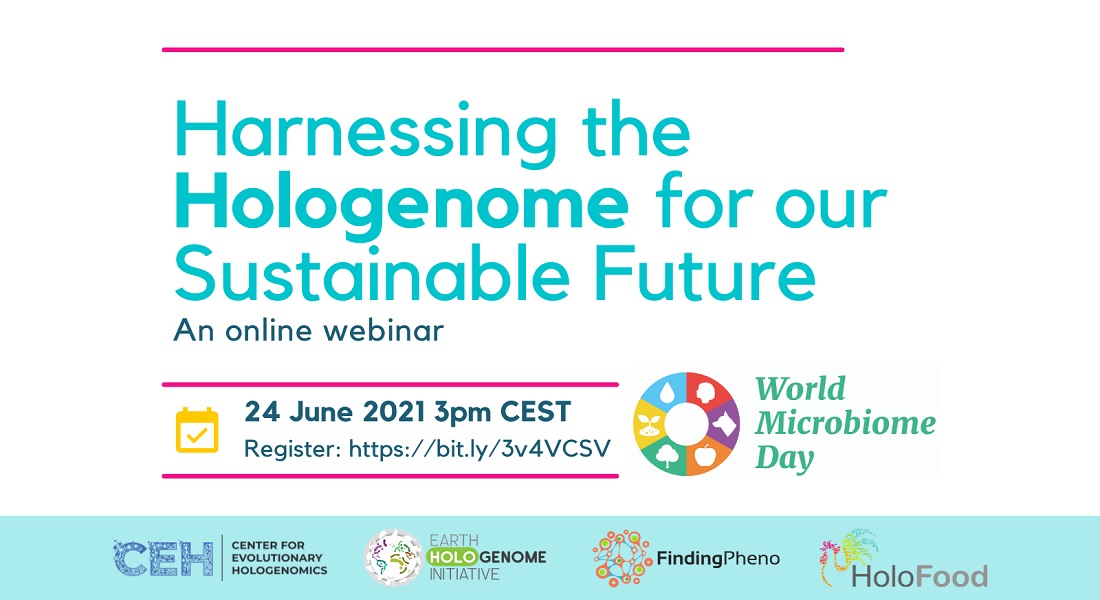Harnessing the Hologenome for our Sustainable Future

From ecological questions to industrial applications, harnessing the power of microbiomes is becoming increasingly recognised for its potential in solving the world’s most challenging problems. In keeping with this year's World Microbiome Day theme of sustainability, four UCPH-led holo-projects bring you this webinar with four leading scientists that highlights how research of both the microbiome and the host animal, insect or plant can be used to explain the world around us with a new lens. Sign up here.
Speakers and Abstracts:
Talk 1: The role of the hologenome in defining group-identity in social insects
Prof. Yehuda Ben-Shahar, Washington University in St. Louis, US
My webinar will discuss recent findings about the role of the gut microbiome in regulating the chemosensory signalling pathways that regulate nestmate recognition in colonies of social insects. Based on recent findings in the honey bee, I will offer a somewhat new perspective on how symbiotic bacteria may have shaped the evolution of insect eusociality.
Talk 2: Omics in aquaculture: exploiting metagenomics and metatranscriptomics to improve seaweed domestication
Melisa Osborne and Kelly Deweese, PhD Candidates, University of Southern California, US
Talk 3: Trials and tribulations of the avian gut microbiota in the urban mosaic
Associate Prof. Marta Szulkin, Wild Urban Evolution & Ecology Lab, University of Warsaw
How anthropogenic and urban change impacts the gut microbiota of wild animals is still largely unknown. I will here (i) demonstrate that how the urban space is defined can affect the outcomes of studies investigating animal-microbe symbiosis. I will further (ii) report how distinct environmental dimensions of the urban space covary with the community composition of avian early-life microbiota. Finally, I will (iii) outline further work that would strengthen our understanding of gut microbiome variation in the urban space.
Moderators: Anna Fotaki, Aoife Leonard, Shelley Edmunds
The event is hosted by the Center for Evolutionary Hologenomics and co-organised by HoloFish, HoloFood, EHI & FindingPheno.
Time: Thursday 24 June, 15.00 - 16.30 (CEST)
Location: Virtual webinar, sign up here: https://ucph-ku.zoom.us/webinar/register/WN_5WpfzGeeQ565o_QgKLnO7w
The event is open to all.
This event has taken place.
